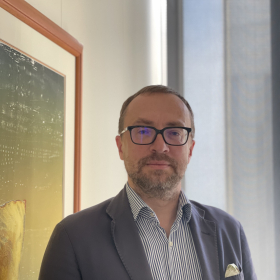

Marko (Lawyer linguist – Court of Justice of the EU)
My name is Marko, and as a lawyer-linguist at the Court of Justice of the European Union, my task is to ensure that court documents in foreign languages are translated into Estonian in such a way that the reader believes they were originally drafted in Estonian.
In my daily work, I not only need to be proficient in foreign languages, but, in addition to a solid knowledge of EU law, I must also be familiar with the legal systems of other EU Member States, sometimes creating new legal concepts in Estonian when necessary. As a quality advisor at the Estonian Translation Department, I believe that, alongside ensuring access to the widest possible body of case law in Estonian, it is crucial that our translations are as accurate as possible. This allows us to convey the true meaning of legal texts to Estonian readers.
Having worked at the Court of Justice of the European Union for over 20 years, I can confirm that the legal issues I translate are both highly engaging and topical, offering an opportunity to contribute personally to the development of the Estonian legal language. The rapid development of technology and artificial intelligence also presents daily challenges in my work – I have the extraordinary privilege of being at the heart of it all in Europe.
*****
Euroopa Liidu Kohtu jurist-lingvistina on minu ülesanne tagada, et võõrkeelsed kohtudokumendid oleksid tõlgitud eesti keelde nii, et lugejale jääks mulje, et need ongi algselt koostatud eesti keeles.
Minu igapäevane töö eeldab laialdast võõrkeelte oskust, liidu õiguse tundmist ning võrdleva õiguse analüüsi, mis hõlmab kõikide liikmesriikide õigussüsteemide mõistmist, selleks et kasutada tõlkimisel võimalikult täpset eesti õigusterminit või vajaduse korral luua uus termin. Eesti tõlkeosakonna kvaliteedinõunikuna seisan hea selle eest, et eesti keeles kättesaadava kohtupraktika tõlked oleksid võimalikult kvaliteetsed ja usaldusväärsed. Nii saab Eesti lugejale eesti keeles edasi anda õigustekstide tegeliku mõtte.
Olles Euroopa Liidu Kohtus töötanud üle 20 aasta, kinnitan, et tõlgitavad õigusprobleemid on äärmiselt põnevad ja aktuaalsed ning pakuvad võimaluse isiklikult panustada eesti õiguskeele arengusse. Tehnoloogia ja tehisintellekti kiire areng seab iga päev väljakutseid ka minu töös – mul on erakordne privileeg olla otse Euroopa südames.
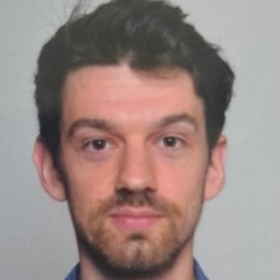
Clément, Cour de justice de l’Union européenne
« Je travaille en tant que juriste-linguiste au sein de l’unité de traduction de langue française à la Cour de justice de l'UE depuis huit ans. Les tâches qui incombent à cette unité consistent principalement en la traduction de pièces de procédure dans des affaires portées devant la Cour et le Tribunal et de conclusions rédigées par les avocats généraux.
Ce métier permet d’allier une expertise en matière juridique et la pratique des langues, en exerçant dans une institution qui joue un rôle essentiel au sein de l’Union européenne.
Il offre également un environnement de travail propice à l’acquisition constante de compétences au fil de la carrière, notamment par l’apprentissage de langues étrangères et la formation à l’utilisation de nouveaux outils de travail dans le domaine de l’informatique et des technologies. »
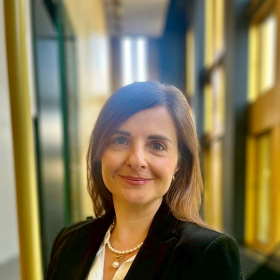
Kristine, Court of Justice of the EU
“Being a lawyer-linguist allows me to combine my legal expertise with a passion for languages.
My journey began on the other side of the courtroom, representing Latvia before the Court. Today, from within the institution, I ensure that the Court’s legal texts are clear, precise, and accessible in Latvian. Thus, I contribute to fair and effective application of EU law, ultimately influencing the daily lives of citizens across the Union.
The rapid development of language technologies is reshaping our profession, opening exciting opportunities. We are actively working on finding the most reliable and responsible ways to integrate AI into legal translation, while preserving the accuracy and nuance that only human judgment can ensure.”
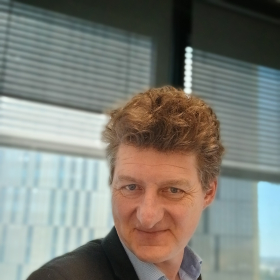
Martin (Lawyer linguist – Court of Justice of the EU)
Na českém překladatelském oddělení se věnuji mimo jiné práci na interních předpisech, tedy na jednacích řádech a různých prováděcích předpisech a pokynech k nim. Průběžně se novelizují a aktualizují a to se pak promítá do celé řady dalších dokumentů soudu, včetně jeho rozhodnutí. Jde o práci, při níž má každé slovo svou váhu. Přesné porozumění textu a jeho smyslu je zcela nezbytným předpokladem. K tomu napomáhá týmová práce a komunikace s ostatními překladatelskými odděleními a autory překládaných textů. Spolupráce, komunikace v různých jazycích a preciznost jsou právě tím, co mě na mé práci tolik baví a uspokojuje.
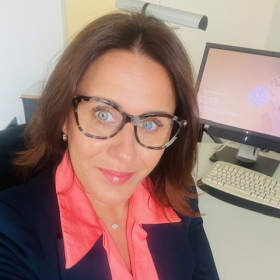
Kateřina (Lawyer linguist – Court of Justice of the EU)
Po absolvování Právnické fakulty v České republice a ročním studijním pobytu na univerzitě ve Spojeném království v rámci programu Erasmus jsem zahájila svou profesní dráhu jako stážistka u Soudního dvora Evropské unie, a to ještě před vstupem České republiky do Evropské unie. Krátce po ukončení stáže jsem nastoupila jako pomocná pracovnice do útvaru, jehož hlavním úkolem byla příprava Soudního dvora EU na rozšíření Evropské unie v roce 2004, kdy se její součástí stala i Česká republika.
Měla jsem tu čest podílet se na vzniku českého oddělení v rámci ředitelství pro právní překlady. Tato práce pro mě představovala významnou profesní výzvu a současně přispěla k položení základů organizační struktury českého překladatelského oddělení v podobě, v jaké existuje dodnes. Po více než dvaceti letech působení ve funkci právníka-lingvisty u Soudního dvora Evropské unie vnímám svou práci v českém oddělení Generálního ředitelství pro mnohojazyčnost stále jako velmi podnětnou, zejména v kontextu současných proměn vyvolaných nástupem umělé inteligence.
Dlouhodobě se zaměřuji na oblast práva duševního vlastnictví, aktivně se podílím na rozsáhlých terminologických projektech, stejně jako na výběru externích spolupracovníků a budoucích kolegů. Výkon funkce právníka-lingvisty u Soudního dvora Evropské unie představuje unikátní spojení právního vzdělání a hluboké znalosti cizích jazyků, které jsou zároveň mou dlouholetou vášní. Součástí mé každodenní pracovní náplně je rovněž úzká spolupráce s dalšími útvary Soudního dvora, s kabinety soudců, s kolegy z ostatních orgánů EU a s externími odborníky. Práce v multikulturním prostředí, které Soudní dvůr Evropské unie poskytuje, je mimořádně obohacující a představuje výjimečnou profesní zkušenost.
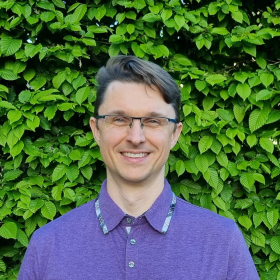
Michal (Lawyer linguist – Court of Justice of the EU)
Jmenuji se Michal a jako právník-lingvista u Soudního dvora Evropské unie propojuji právo, jazyk a technologie v dynamickém prostředí evropské justice. Moje práce není jen o překládání, ale i o skutečném porozumění, které nadále vyžaduje kritické myšlení, jazykovou zručnost a právní erudici. Chytré algoritmy, pokročilé jazykové nástroje a umělá inteligence mi usnadňují část práce a zároveň mi otevírají nové možnosti, jak právní texty analyzovat a interpretovat. Neustále se učím pracovat s moderními technologiemi – od překladatelských softwarů až po pokročilé AI aplikace – a pomáhám kolegům tyto nástroje zvládnout tak, aby jim usnadnily jejich práci místo toho, aby je brzdily. Díky znalosti českého práva pomáhám kolegům z různých právních kultur pochopit jeho specifika a přispívám k vytváření společného právního jazyka pro celý evropský prostor. Je to práce plná výzev a neustálého učení, ale právě proto je tak zajímavá! Pokud tě baví právo a jazyky, zajímáš se o technologie a láká tě práce v evropské justici, možná je to příležitost přesně pro tebe. Chceš taky být u rozhodnutí, která ovlivňují miliony lidí? 🚀
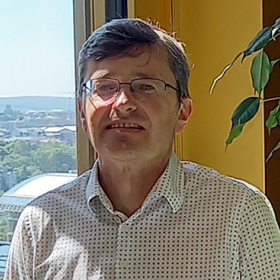
Marek (Lawyer linguist – Court of Justice of the EU)
Jmenuji se Marek a na Soudním dvoře pracuji jako právník lingvista přes 20 let. Právní zkušenost předtím získanou v advokacii mohu využívat i v současné práci, zejména v souvislosti s agendou týkající se duševního vlastnictví. Při používání nejnovějších technologií se v této oblasti podílím zejména na vypracování příslušné právní terminologie a srovnávacích terminologických rešerší. V rámci překladů a revizí právních dokumentů kontroluji mimo jiné správnost a soudržnost používané terminologie.

Juliana (Lawyer-linguist - Court of Justice of the EU)
“Svoju prácu už viac ako 15 rokov, keď som úspešne absolvovala výberové konanie na miesto právneho lingvistu, vnímam ako poslanie. Jednou z hlavných úloh právnika lingvistu na Súdnom dvore v Luxembursku je zabezpečiť, aby právne dokumenty Súdneho dvora boli presne a v súlade s právnou terminológiou preložené do všetkých úradných jazykov Únie. Právnik lingvista pracuje v multikultúrnom a multijazyčnom prostredí. Samotné Luxembursko poskytuje vysokú kvalitu života, kultúrne a športové vyžitie pre všetky vekové kategórie. Ak ste zanieteným lingvistom so záujmom pre právo a európsku integráciu, táto práca a životný štýl v Luxembursku môžu byť pre vás ideálnou kombináciou.”
***
“After successfully completing the selection process for the position of legal linguist, I have been seeing this job as a mission for more than 15 years. One of the main tasks of a lawyer linguist at the Court of Justice of Luxembourg is to ensure that the legal documents of the Court of Justice are translated accurately and in accordance with legal terminology into all the official languages of the Union. As a lawyer linguist, you have the opportunity to work in a multicultural and multilingual environment. Luxembourg itself provides a high quality of life, cultural and sports activities for all age groups. If you are a passionate linguist with a passion for law and European integration, this job and lifestyle in Luxembourg could be the perfect combination for you.”
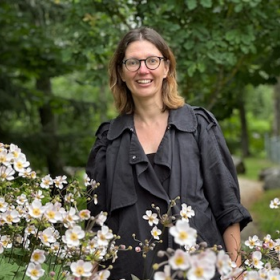
Sigita (Lawyer-linguist - Court of Justice of the EU)
Teisingumo Teisme pradėjau dirbti beveik tuo pat metu, kai Lietuva įstojo į Europos Sąjungą, neseniai baigusi teisės studijas Lietuvoje ir Prancūzijoje. Tuo metu buvo labai mažai lietuvių teisininkų, kurie mokėtų prancūzų kalbą taip gerai, kad sugebėtų išversti teisinį tekstą. Ir ne bet kokį teisinį tekstą, o tokį, kuriame Europos Sąjungos teisė persipynusi su valstybių narių teisės sistemomis ir kyla sudėtingų teisės taikymo problemų labai įvairiose srityse, net tokiose, kurios Lietuvoje tuo metu buvo tik pradedamos plėtoti. Taigi, siekiant kuo tiksliau gimtąja kalba perteikti Teisingumo Teismo teisinę mintį, teko ir tebetenka nemažai paplušėti: pasirausti bylos dokumentuose, pasikonsultuoti su kolegomis, kalbininkais, teisėjų kabinetų nariais ir kitomis tarnybomis ar net apsilankyti didžiausioje Europos Sąjungos teisinių leidinių bibliotekoje.
Dirbdama dvidešimt metų tarptautinėje Liuksemburgo aplinkoje su kompetentingais kolegomis, ES teisės ir lyginamosios teisės specialistais, labai daug išmokau. Šiuo metu teisinius dokumentus verčiu ne tik iš prancūzų, bet ir anglų bei ispanų kalbų, mokausi vokiečių. Man labai patinka, kad mano darbe profesinis mokymasis (įskaitant užsienio kalbas) labai skatinamas ir sudarytos puikios sąlygos kompetenciją tobulinti tiek institucijos viduje, tiek seminaruose ar mokymuose visoje Europoje. Dėl technologijų raidos teisininko lingvisto profesija per šį laikotarpį labai pakito, ir man kartu su kolegomis teko įgyti daug visiškai naujų įgūdžių. Šaunu, kad mūsų institucijoje tam sudarytos puikios sąlygos, taip pat užtikrinamos geros socialinės garantijos, puikiai įrengtos darbo vietos, o lankstaus darbo grafiko galimybė labai padeda suderinti šeimos ir profesinį gyvenimą. Institucijoje rūpinamasi ir malonia darbo aplinka: organizuojami kultūriniai, sportiniai, socialiniai renginiai, asmeninio tobulėjimo mokymai, darbo dieną smagu aktyviai pradėti ar užbaigti dideliame sporto centre.
Nekantrauju Jus, savo naują kolegą, pasveikinti Europos Sąjungos Teisingumo Teisme!
Nuoširdūs linkėjimai iš gražiojo Liuksemburgo,
***
I joined the Court of Justice almost at the same time as Lithuania joined the European Union, having recently graduated in law in Lithuania and France. At that time, there were very few Lithuanian lawyers who knew French well enough to translate a legal text. And not just any legal text, but one in which European Union law is intertwined with the legal systems of the Member States, and which raises complex problems of legal application in a wide variety of areas, even in areas that were just beginning to be developed in Lithuania at the time. Thus, in order to convey the Court of Justice's legal reasoning as accurately as possible in my native language, it has been, and continues to be, necessary to do a great deal of work: to review case documents, to consult colleagues, linguists, members of the judges' chambers and other services, and even to visit the largest library of European Union law publications.
Working for twenty years in the international environment of Luxembourg with professional colleagues, specialists in EU law and comparative law, I have learnt a lot. I am currently translating legal documents not only from French, but also from English and Spanish, and I am studying German. I like the fact that professional learning (including foreign languages) is very much encouraged in my job and that there are excellent opportunities to develop my competences, both within the institution and in seminars or training courses throughout Europe. Technological developments have changed the legal linguistics profession considerably during this period, and I have had to acquire many completely new skills, as have my colleagues. It is great that our institution offers excellent conditions for this professional development, as well as good social security, well-equipped workplaces and the possibility of a flexible work schedule, which is a great help in reconciling family and professional life. The institution also provides a pleasant working environment, with cultural, sporting and social events, personal development training, and a great place to start or end the working day with a session in the large sports centre.
I look forward to welcoming you, my new colleague, to the Court of Justice of the European Union!
Sincere greetings from the beautiful city of Luxembourg,
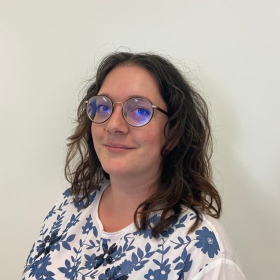
Molly (Lawyer-linguist - Court of Justice of the EU)
“I have been an official for the past year and a half, but I have been at the Court of Justice, first as a trainee then a temporary agent, since 2017 (with a break to continue my legal training). I trained as a translator, which I followed up with a law diploma – a requirement for lawyer linguists at the Court of Justice – before coming to Court as a trainee with the English language translation unit.
My working languages are French, German, Italian, Spanish and Greek – one of the aspects of working for the EU that I appreciate the most is how multilingualism is an integral part of everything we do, so my languages are put to practical use on a daily basis!”
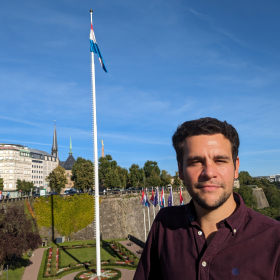
Gregorio (Lawyer-linguist - Court of Justice of the EU)
“I have been working as a lawyer-linguist for the Spanish translation unit of the Court of Justice of the European Union since 2017. My main tasks include translating and revising translations of documents of the Court of Justice (judgments, orders, opinions...). Furthermore, I analyse and summarise references for a preliminary ruling submitted by Spanish courts.
My job allows me to combine my two areas of specialisation, i.e. the law and languages. In addition to working in a multilingual environment, carrying out my tasks autonomously and learning new languages, I consider it a privilege to translate the case law of the Court of Justice into my mother tongue and to be in close contact with developments and changes in European Union law.”
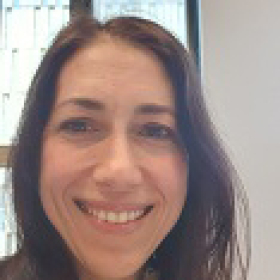
Susana (Lawyer-linguist - Court of Justice of the EU)
“Trabalhar como jurista-linguista no Tribunal de Justiça permite ter um conhecimento profundo da jurisprudência da União num alargado domínio de áreas do Direito, como por exemplo Direito da Concorrência, do Ambiente, Penal ou Fiscal. Também permite ter uma perspetiva dos sistemas jurídicos e da legislação nacional dos Estados-Membros. É um trabalho enriquecedor e desafiante, que exige um bom conhecimento de diferentes línguas da União. Por outro lado, os juristas-linguistas estão também envolvidos em vários projetos, como por exemplo no âmbito da terminologia, das ferramentas informáticas de tradução, prestando ainda apoio aos outros serviços do Tribunal de Justiça.”
***
“Working as a lawyer-linguist in the ECJ allows you to have a broad knowledge of European case-law in a wide range of subjects, including competition, environmental, criminal or tax law. It also gives you an overview of the Member States legal systems and national legislations. It is a fulfilling and challenging job, which requires a good command of several EU languages. Lawyer linguists are also involved in a number of other projects, for example in the field of terminology, software tools and support to other Units and services of the Court.”
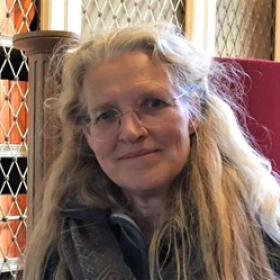
Ingrid (Lawyer-linguist - Court of Justice of the EU)
“Ik ben Ingrid en werk al meer dan 20 jaar als jurist-linguïst bij het Hof van Justitie. Ervaren collega’s leerden mij de kneepjes van het vak. Dankzij hen kon ik al snel zelfstandig vertalen. Tegenwoordig ondersteun ik nieuwe collega’s door kwaliteitscontrole te verrichten. Het werk schenkt me nog steeds bijzonder veel voldoening.
Of ik nu vertaal of controleer, het blijft boeiend om steeds met zeer verschillende juridische, veelal actuele, onderwerpen bezig te zijn: asielproblematiek, grote kartelzaken, bescherming bedreigde diersoorten, om er maar enkele te noemen. Ook al woon ik nu in Luxemburg, via de zaken bij het Hof ben ik steeds in zekere zin betrokken bij de grote maatschappelijke problemen in de verschillende lidstaten, dus ook in Nederland.
Voor de vrije tijd buiten het werk is Luxemburg een heerlijk land om in te wonen, vooral ook voor natuurliefhebbers: er zijn ontelbare wandelroutes door prachtige landschappen en je hoeft er nooit ver voor te reizen.”

Maggy (Lawyer-linguist - Court of Justice of the EU)
“Ik beken: het heeft destijds niet veel gescheeld of ik had mijn kans om bij het Hof aan de slag te gaan gemist. Ik zat namelijk middenin de examenperiode – en dus met mijn neus in de studieboeken en niet in de krant – toen het Hof een advertentie voor de job van jurist-vertaler bij de Nederlandse vertaalafdeling publiceerde …
Gelukkig was er mijn partner! Ik herinner me als de dag van gisteren hoe hij de aankondiging naar me toe schoof en terloops vroeg of “dit misschien iets voor mij was”?
NATUURLIJK was dit iets voor mij!! Na mijn studies Romaanse filologie aan de Universiteit Antwerpen had ik een baan gevonden bij een grote juridische uitgeverij, en na een tijdje had ik zin gekregen om rechten te gaan studeren. Zo gezegd, zo gedaan: toen de advertentie van het Hof verscheen, was ik mijn laatste examens aan de Vrije Universiteit Brussel aan het afleggen … Ik besefte meteen: hier had ik van gedroomd! Ik was gek op taal en had (bijna) een diploma rechten op zak – een mooiere combinatie was nauwelijks denkbaar!
Ik heb dus niet getwijfeld en, zie, inmiddels ben ik net geen 20 jaar bij het Hof in dienst …
De eerste tijd bij het Hof is best intensief: professioneel kom je in een nieuwe, internationale omgeving terecht en je hebt nog heel wat te leren. Geen nood, want je kan rekenen op fijne collega’s die je graag een handje helpen! Ook privé kom je in een nieuwe omgeving terecht. Mijn partner en ik hebben ervoor gekozen om in de Belgische Ardennen te gaan wonen. Prachtig is het daar! Je kan er eindeloos wandelen, fietsen en joggen. En als je eens geen zin hebt in natuur, is de stad nooit echt ver weg.
Maar ook na de “opstartperiode” blijft het een pittige job, die niet gaat vervelen. In hun teksten buigen het Hof en het Gerecht zich over grote actuele thema’s, en als jurist-vertaler zit je in een bevoorrechte positie om de trends in de rechtspraak van de hoogste Europese rechterlijke instanties op de voet te volgen. Net als de maatschappij evolueert uiteraard ook het vak zelf: de hedendaagse vertaaltechnieken bieden nieuwe mogelijkheden, maar stellen de jurist-vertaler ook voor nieuwe uitdagingen.
Zie jij een uitdaging wel zitten? Dan horen we graag van je!”
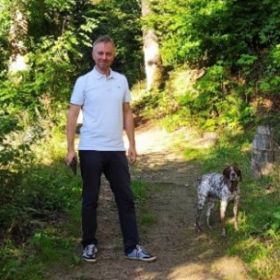
Stefan (Lawyer-linguist - Court of Justice of the EU)
“Mijn naam is Stefan. De combinatie van recht en talen heeft me naar het hart van Luxemburg gebracht. Doordat ik vertaalwetenschap heb gestudeerd en daarnaast ook een rechtenopleiding heb voltooid, voelt werken bij het Hof van Justitie als thuiskomen. Hier krijg ik volop de kans om mijn juridische en taalkundige vaardigheden in de praktijk te gebruiken om vragen van nationale rechters, conclusies van de advocaten-generaal en uitspraken van het Hof naar mijn eigen taal om te zetten. Door de veelzijdigheid aan onderwerpen en de terminologische uitdagingen gaat dit werk nooit vervelen. Ik heb ook nieuwe talen geleerd en me verder kunnen bekwamen in de talen die ik al sprak. De contacten met collega’s van andere afdelingen hebben mijn blik op de wereld ontegenzeggelijk verruimd. Ook heb ik op het Hof de Spaanse schone leren kennen die ik nu mijn vrouw mag noemen.
Luxemburg – met zijn vele banken en verschillende Europese instellingen – ademt een internationale sfeer uit. Het is een bruisende stad waar je leuk kan shoppen en uit eten kan gaan. Ook voor cultuur hoef je niet ver te zoeken, met een aanbod dat ongewoon groot is voor een stad van die omvang. Onder meer het museum voor moderne kunst en het concerthuis, twee pareltjes van architectuur, zijn zeker een bezoek waard. Voor wie het wat ruiger mag zijn, is er de Rockhal. En voor mensen met honden is het Groothertogdom een waar paradijs. Zo is er altijd een bos bij je in de buurt!”
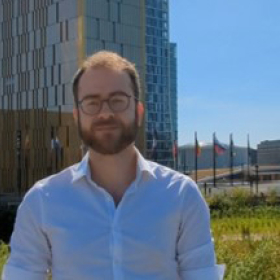
Martijn (Lawyer-linguist - Court of Justice of the EU)
“Ik ben Martijn, jurist-linguïst bij het Europees Hof van Justitie in Luxemburg. Na mijn rechtenstudie in Leiden en een periode als universitair docent wilde ik ervaring opdoen op het gebied van Europees recht. Dus solliciteerde ik bij meerdere Europese instellingen, waaronder het Hof van Justitie. Ik had meer bepaald een stage bij de directie Onderzoek en Documentatie op het oog, maar uiteindelijk was het mijn huidige afdelingshoofd die me van een algemene lijst sollicitanten plukte met de vraag of ik geen interesse had in een stage bij de Nederlandstalige vertaalafdeling. Nu had ik weliswaar een perfecte kennis van het Engels, maar een zeer beperkte achtergrond in het Duits en het (veel belangrijkere) Frans. Maar het afdelingshoofd had er wel vertrouwen in.
En zo geschiedde. Dankzij de uitstekende begeleiding vertaal ik vijf jaar later niet alleen uit die drie talen, maar ook uit het Spaans, en ben ik begonnen het werk van anderen te reviseren. Wat mij het meeste aan dit werk bevalt, is dan ook de mogelijkheid en in feite het vereiste om je taalkundige kennis te blijven ontwikkelen.
Maar ons werk is ook vanuit juridisch oogpunt erg interessant. We krijgen stukken onder ogen uit elke stap van de (inhoudelijk uiteenlopende) zaken voor het Hof: van verzoekschrift of prejudiciële vraag tot de einduitspraak. Specifiek in zaken waarin aan het Hof een vraag wordt gesteld door een Nederlandse of Vlaamse rechter spelen wij bovendien een rol bij de verwerking van deze vragen met het oog op de vertaling naar alle andere officiële talen.
Daarnaast is Luxemburg een heel fijne stad om in te wonen. Heel groen, maar ook levendig en natuurlijk erg internationaal. Dat geldt ook voor het Hof zelf, waar je per definitie samenwerkt met mensen uit alle uithoeken van de Europese Unie. En ik kan uit eigen ervaring zeggen dat dit echt een verrijking is, niet alleen professioneel: ik heb inmiddels vrienden uit heel Europa en heb mijn Spaanse verloofde op het Hof … het hof gemaakt. Kan het nog mooier?
Toen ik hier begon, als toch wel erg nerveuze stagiair, had ik nooit kunnen dromen dat ik ruim vijf jaar later in Luxemburg een leven zou hebben opgebouwd.”
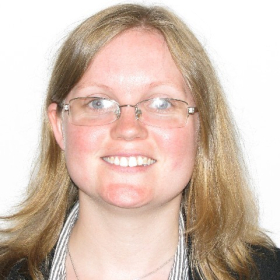
Rose (Lawyer-linguist - Court of Justice of the EU)
“I have been working for the Court since 2011, starting as a stagiaire (intern) in the English Translation Unit – now, I advise the Unit on Quality Management issues, in addition to translating from French, Italian, Polish and Romanian (the last two of which I had the opportunity to learn through the Court’s language classes) and correcting freelance and in-house colleagues’ translations from these languages.
My background is primarily in modern languages – my degree was in French and Italian – so it is a real joy to work in an institution and a country where I get to use them every day! Working as a lawyer linguist has also helped me to expand and consolidate my knowledge of EU law (I obtained the Graduate Diploma in Law and completed the Legal Practice Course before coming to Luxembourg) and to gain a deeper insight into the legal systems of the individual Member States.”

Veerle (Lawyer-linguist - Court of Justice of the EU)
“Als zeventienjarige een studiekeuze maken is niet voor iedereen even vanzelfsprekend. Je hebt ongetwijfeld heel wat jongeren die al vroeg weten wat ze willen en er volop voor gaan. Zelf kon ik mij onmogelijk tot die groep rekenen: ook als ik alles wat van ver of dicht op exacte wetenschappen leek buiten beschouwing liet, bleven er nog tal van opties over. L’embarras du choix ... Ik schipperde lang tussen rechtenstudies, de opleiding vertaler-tolk of Germaanse taal- en letterkunde. Ik kreeg meer dan eens te horen dat je met een diploma rechten “alle kanten op kan”. Dat gaf uiteindelijk de doorslag.
Toen een professor in mijn tweede jaar rechten wees op de carrièremogelijkheden voor juristen-vertalers bij de Europese Unie en specifiek bij het Hof van Justitie, spitste ik de oren: dit moest wel mijn droombaan zijn! Maar hoe realistisch was die droom om bij de EU aan de slag te gaan? Uiteindelijk werkte ik na mijn studies als advocaat en bedrijfsjurist. Als er intern iets moest worden vertaald of het werk van externe vertaalkantoren moest worden nagelezen, stelde ik me steevast kandidaat. Stilaan werd het zonneklaar: dit was de weg die ik wilde inslaan. Ik startte als vertaler in bijberoep en bij het vorige vergelijkende onderzoek waagde ik mijn kans.
Ik werk nu enkele jaren op de Nederlandstalige vertaalafdeling en leer nog elke dag bij. Heel vaak kan ik de specifieke ervaring die ik eerder als jurist opdeed, inzetten bij het vertalen. Beginnende vertalers worden niet aan hun lot overgelaten. Naast een uitgebreid opleidingsparcours is er binnen de afdeling volop begeleiding en krijg je constructieve feedback.
En Luxemburg? Dat bleek een revelatie. Het land is erg kindvriendelijk en de hoofdstad is op mensenmaat gemaakt. Mijn zoontje van 2,5 jaar krijgt hier in Luxemburg heel wat talen mee: hij gaat naar de crèche in het Frans, volgt turnles in het Engels en begroet mensen vaak met een vrolijk “Moien”. Heel leuk is dat er vlakbij het Hof, in Pfaffenthal, zelfs een Nederlandstalige jeugdbibliotheek is. Er zijn heel veel speelpleinen om te ontdekken en de natuur is hier nooit veraf.
Misschien kan ik jou hier binnenkort verwelkomen?
Vriendelijke groet,
Veerle”

Branislav (Lawyer-linguist - Court of Justice of the EU)
“Ahoj, volám sa Branislav a na Súdnom dvore Európskej únie pracujem ako právnik lingvista už viac ako 17 rokov. Vzhľadom na svoje vzdelanie získané na francúzsko-slovenskom bilingválnom gymnáziu a na právnickej fakulte a na bohaté pracovné skúsenosti, ktoré som nadobudol počas piatich rokov na slovenskom vnútroštátnom súde, som sa rozhodol zmeniť prácu a prijať nové výzvy, v rámci ktorých môžem maximálne skĺbiť svoje vedomosti a schopnosti (jazykové aj právne).
Po rozšírení skúseností na stážach vo Francúzsku už bola moja voľba veľmi jednoduchá: Súdny dvor Európskej únie v Luxemburgu: súdna inštitúcia, ktorej jedným z hlavných jazykov komunikácie je francúzština a ktorá sídli v Luxembursku, kde je jedným z úradných jazykov takisto francúzština.
Dvere na Slovenskú prekladateľskú sekciu sa mi pootvorili po absolvovaní stáže na Oddelení výskumu a dokumentácie Súdneho dvora. Práca právnika lingvistu je špecifická tým, že má obrovský potenciál naplniť očakávania každého právnika, ktorý je jazykovo zdatný, má chuť sa ďalej vzdelávať a rád prijíma nové pracovné príležitosti v zahraničí.”
***
“Bonjour, je m'appelle Branislav et je travaille à la Cour de justice de l'Union européenne en tant que juriste-linguiste depuis plus de 17 ans. Compte tenu de ma formation au lycée bilingue français-slovaque et à la faculté de droit, ainsi que de ma vaste expérience acquise au cours de mes cinq années de travail à la cour nationale slovaque, j'ai décidé de chercher un nouvel emploi avec de nouveaux défis, dans lequel je pourrai combiner au maximum mes connaissances et mes compétences (tant linguistiques que juridiques).
Après avoir acquis plus d'expérience au cours de mes stages en France, mon choix était déjà très simple : la Cour de justice de l´Union européenne de Luxembourg : une institution judiciaire dont la langue principale de communication est le français et qui est basée au Luxembourg, où l'une des langues officielles est également le français.
La porte de la section de traduction slovaque s'est ouverte à moi après mon stage au service de recherche et documentation de la Cour de justice. Le travail de juriste-linguiste est spécifique en ce sens qu'il a un grand potentiel pour répondre aux attentes de tout juriste ayant des compétences linguistiques, désireux de poursuivre sa formation et aimant relever les défis du travail à l'étranger.”
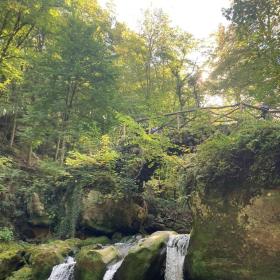
Zuzana (Lawyer-linguist - Court of Justice of the EU)
Čím viac som pri cestovaní spoznávala svet, tým viac sa vo mne prehĺbila identita hrdej Európanky. Považujem za privilégium, že k šíreniu hodnôt, na ktorých je postavená Európska únia, môžem po ukončení štúdia práva v Bratislave a vo Viedni prispievať svojou každodennou prácou. Tá mi zároveň umožňuje byť „up-to-date“ priamo pri zdroji v najrozmanitejších oblastiach práva EÚ a zároveň využiť znalosť cudzích jazykov. Zo začiatku som na tejto pozícii ocenila profesionálne vedenie pri nadobúdaní špecifických profesijných skúseností, ako aj rôzne školenia. Postupne som mohla čiastočne pracovať z domu, mať väčšiu samostatnosť a pracovnú flexibilitu. Krásne a moderné priestory budov Súdneho dvora, dobrá organizácia práce, kontinuálna možnosť štúdia jazykov, korektný kolektív a zaujímavé finančné ohodnotenie prispievajú k celkovému výbornému pocitu.
Hoci by sa Luxemburg mohol zo začiatku javiť ako málo pulzujúce miesto, neustále sa vyvíja, čomu prispieva jeho centrálna poloha v blízkosti hraníc s Nemeckom, Francúzskom a Belgickom. Pre mňa osobne je najdôležitejšia skutočnosť, že sa v meste cítim bezpečne, a taktiež oceňujem fungujúce štátne inštitúcie a pluralitnú, tolerantnú spoločnosť. Luxemburg ponúka množstvo kultúrnych príležitostí, ako aj možnosť dostať sa verejnou dopravou zdarma na výlety do prírody v rámci krajiny. Možnosť žiť v meste, ktoré je svetovým dedičstvom UNESCO a je tak ľahko dostupné, zaiste vykompenzuje aj tých pár kvapiek dažďa navyše.
***
The more I explored the world while travelling, the more my identity as a proud European deepened. I consider it a privilege to be able to contribute to spreading the values on which the European Union is built through my daily work after completing my law studies in Bratislava and Vienna. It also allows me to be "up-to-date" at the source in the most diverse areas of EU law, while at the same time making use of my knowledge of foreign languages. In the beginning, I appreciated the professional guidance in gaining specific professional experience as well as the various training opportunities. Gradually, I was able to work partly from home and have more autonomy and work flexibility. The beautiful and modern premises of the Court of Justice buildings, the good organisation of work, the continuous opportunity to learn languages, the correct team and the interesting financial remuneration contribute to an overall excellent feeling.
Although Luxembourg might initially appear to be a place with little vibrancy, it is constantly evolving, helped by its central location close to the borders with Germany, France and Belgium. Most important for me personally is the fact that I feel safe in the city, and I also appreciate the functioning state institutions and the pluralistic, tolerant society. Luxembourg offers many cultural opportunities, as well as the possibility to get free public transport to go on nature trips within the country. The opportunity to live in a city that is a UNESCO World Heritage Site and so easily accessible certainly makes up for the extra few drops of rain.
***
Photo: Luxembourg countryside
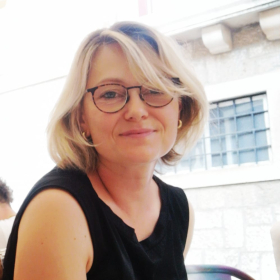
Marcela (Lawyer-linguist - Court of Justice of the EU)
“Volám sa Marcela a pochádzam zo Slovenska.
Vyštudovala som Právnickú fakultu UPJŠ v Košiciach.
V čase, keď som končila štúdium práva, Slovensko bolo krátko pred vstupom do EÚ a mne bolo už vtedy jasné, že chcem byť súčasťou európskeho projektu. V Bratislave som sa začala venovať aproximácii práva a keďže ma vždy bavili aj jazyky, postupne som sa špecializovala na prekladanie legislatívy EÚ a rozsudkov Európskeho súdu pre ľudské práva.
V súčasnosti pracujem ako právnička lingvistka na slovenskej sekcii Generálneho riaditeľstva pre multilingvizmus na Súdnom dvore EÚ v Luxemburgu. Pri mojej práci sa odo mňa očakáva skĺbenie právnických vedomostí so znalosťou jazykov a zároveň sústavné vzdelávanie v právnickej aj jazykovej oblasti, a to v multikultúrnom a multijazyčnom prostredí. V závislosti od konkrétneho druhu súdneho konania sa venujem analýze, prekladu a revíziám rôznych typov dokumentov. Moja práca mi umožňuje byť súčasťou procesov, ktoré vychádzajú z cieľa jazykového režimu Súdneho dvora – šíriť judikatúru do všetkých členských štátov a poskytovať prístup k spravodlivosti pre všetkých občanov EÚ. Práve preto ma baví a napĺňa.”
***
“My name is Marcela and I come from Slovakia.
I graduated from the Faculty of Law at the University of P. J. Šafárik in Košice.
When I finished my legal studies, Slovakia was just about to join the EU and it was clear to me at that time that I wanted to be part of the European project. In Bratislava, I started to work on approximation of laws, and as I have always been interested in languages, I gradually specialised in translating EU legislation and judgments of the European Court of Human Rights.
Currently, I work as a lawyer-linguist in the Slovak section of the Directorate General for Multilinguism at the Court of Justice of the European Union in Luxembourg. My work requires me to combine legal knowledge with language skills and requires continuous training in both legal and linguistic fields, in a multicultural and multilingual environment. Depending on the specific type of legal proceedings, I analyse, translate and revise different types of legal documents. In this position, I am part of the processes which are based on the objective of the Court of Justice's linguistic regime - to disseminate case-law to all Member States and to provide access to justice for all EU citizens. That is why I enjoy and find this work fulfilling.”
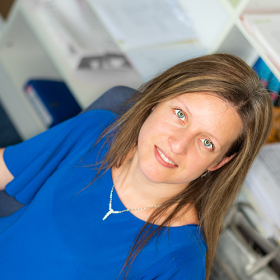
Ieva (Lawyer-linguist - Court of Justice of the EU)
“Suderinti teisės žinias ir pomėgį kalboms – visiškai įmanoma! Būtent tai mes, teisininkai lingvistai, darome kasdien, ieškodami sąsajų tarp skirtingų ES valstybių narių teisės sistemų, perteikdami jų skirtumus, gilindamiesi į teisinius terminus ir kalbines raiškos formas skirtingomis šių valstybių kalbomis. Dirbdama teisininke lingviste Teisingumo Teisme, atradau, kad tiek Lietuvos, tiek bet kurios kitos valstybės narės teisė visgi nėra tik nacionaliniu lygmeniu pritaikoma sritis, kad jos žinias galima pritaikyti daug plačiau, taip pat gilinti žinias įvairiose teisės srityse. O kur dar galimybė gyventi ir dirbti daugiakalbėje ir daugiakultūrėje aplinkoje, kai kalbų mokaisi ne vien iš vadovėlio, o susiduri su jomis nuolat, jų įvairovė tampa įprasta kasdienybe. Pabandykite ir įsitikinsite – šis darbas labai įdomus!”
***
“It‘s absolutely possible to combine your legal knowledge and vocation to learn languages! This is exactly what we do every day as lawyer linguists, looking for links and relations between the legal systems of different EU member states, conveying their differences, going into details when we search for appropriate terms and forms of expression, so that our translation does not look like translation, but more as if the text would be elaborated in our own language. Working as lawyer linguist at the Court of Justice, I found out that the national law of Lithuania (and of any other member state) is not only relevant at the national level, that I can apply this knowledge much more widely and learn something new in different law areas as well. In addition, I should mention the opportunity to live and to work in a multilingual and multicultural environment where you learn languages not only from a textbook, but are constantly surrounded by people speaking these languages, this diversity becomes a part of everyday life. Just try and you will see that this work is very interesting!”
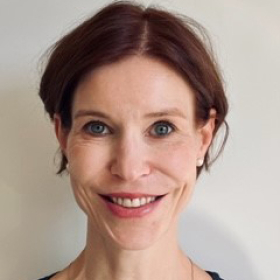
Veronika (Lawyer-linguist - Court of Justice of the EU)
“Ako právnička lingvistka na Slovenskej prekladateľskej sekcii Súdneho dvora EÚ pracujem už 16 rokov. Rozhodnutie prijať ponuku Súdneho dvora nebolo jednoduché, keďže som zvažovala rodinné dôvody. No pracovať pre tak významnú inštitúciu bolo pre mňa veľkou výzvou, ktorú som sa rozhodla prijať. Svoje rozhodnutie som neoľutovala.
Náplňou tejto práce sú preklady a revízie dokumentov Súdneho dvora, ako sú rozsudky, uznesenia a návrhy generálnych advokátov. Prekladáme tiež návrhy na začatie prejudiciálneho konania podané slovenskými súdmi, pripravujeme zhrnutia takýchto návrhov a pre potreby ostatných oddelení Súdneho dvora vykonávame rôzne právne analýzy. Podieľame sa aj na projektoch v oblasti terminológie, ako aj verejného obstarávania na uzavretie zmlúv s externými prekladateľmi.
Ja osobne vnímam ako najväčšie pozitívum práce pre Súdny dvor možnosť kontinuálneho odborného vzdelávania. Súdny dvor ponúka širokú škálu školení: od odborných, cez štúdium jazykov, prehlbovanie si znalostí v oblasti informačných technológií, až po školenia zamerané na osobný manažment.
Taktiež veľmi oceňujem dôsledné dodržiavanie rovnosti medzi ženami a mužmi a dôraz Súdneho dvora na duševnú a pracovnú pohodu svojich pracovníkov.
Cením si tiež dostatočnú flexibilitu, ktorú máme pri výkone našej práce, čo nám umožňuje skĺbiť pracovný a rodinný život. Na našom oddelení panujú dobré kolegiálne vzťahy, čo je nepochybne dôležitým prvkom pohody na pracovisku.
Práca právnika lingvistu je vhodná pre každého, kto má právnické vzdelanie a baví ho pracovať s jazykmi a ďalej sa v týchto oblastiach rozvíjať. Ak vás táto pracovná pozícia zaujala, určite sa do výberového konania na právnikov lingvistov pre Súdny dvor prihláste.”
***
“I have been working as a lawyer-linguist in the Slovak translation unit of the Court of Justice of the EU for 16 years. The decision to accept the offer of the Court of Justice was not an easy one because as I was considering family reasons. However, working for such an important institution was a great challenge for me, which I decided to accept. I have not regretted my decision.
This work involves translating and revising documents of the Court of Justice, such as judgments, orders and opinions of the Advocates-General. We also translate references for preliminary rulings from Slovak courts, prepare summaries of such references and perform, for the needs of other departments, various legal analyses. We are also involved in projects in the field of terminology, as well as tendering for freelance translators.
Personally, I see the opportunity for continuous professional training as the greatest positive aspect of working for the Court of Justice. The Court of Justice offers a wide range of training, such as professional training, language learning, deepening knowledge in the field of information technology or training in personal management.
I am also very appreciative of the Court's strict adherence to equality between women and men at work and the Court's emphasis on the mental and occupational well-being of its staff.
I also appreciate the flexibility we have in the performance of our work, which allows us to combine work and family life. There are good collegial relations in our department, which is undoubtedly an important element of well-being in the workplace.
The job of a lawyer-linguist is suitable for anyone who has a legal background and enjoys working with languages.”
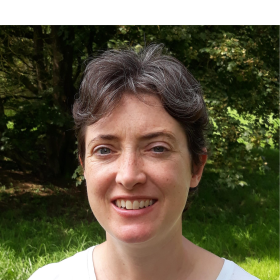
Helen (Lawyer-linguist - Court of Justice of the EU)
“I joined the English translation unit at the Court of Justice after completing a degree in French and Czech, followed by a law conversion course and then the LPC. I was keen to use my language skills and was interested in legal drafting, so the job appealed to me from the outset.
However, while legal writing skills are an important part of our work, the role of a lawyer-linguist involves much more than translation. We are called on to liaise with members of the Judges’ chambers on the precise meaning and nuances to be given to a finished translation and in my time here I have been involved in terminology work, mentoring and recruitment. I have followed a wide range of training courses, covering the latest information technology tools, European and comparative law and personal development. We are also encouraged to acquire additional languages, in my case Spanish and Polish.
In my view, a career as an EU lawyer-linguist is stimulating and rewarding for anyone who enjoys word-play and problem solving. It is also fascinating to work at the forefront of the latest developments in EU law.”

